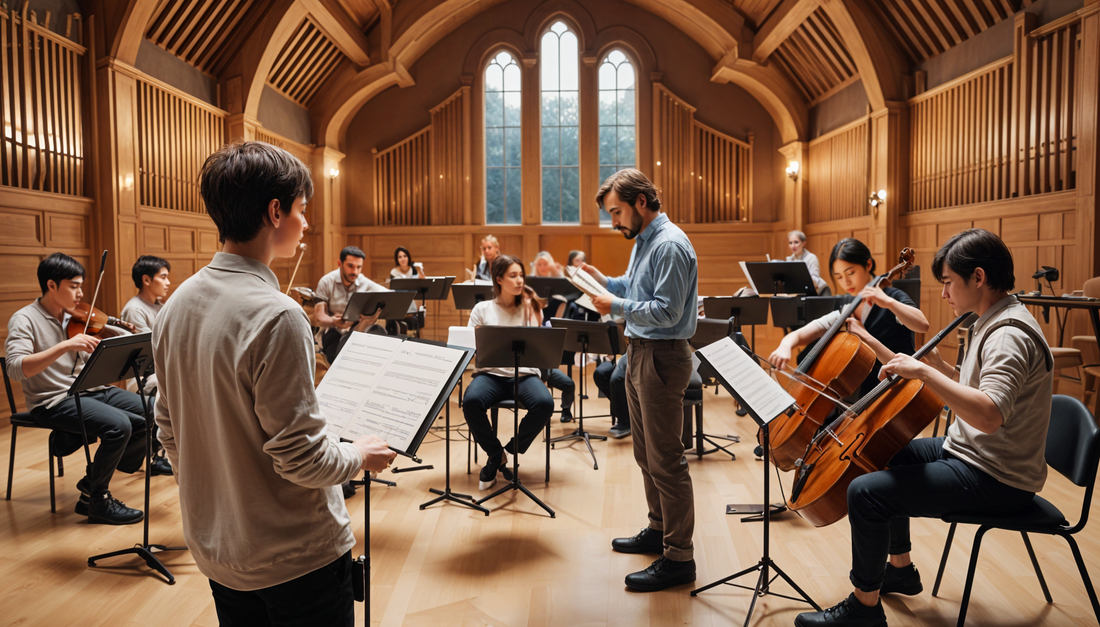A Sliver of Rehearsal Time Can Go a Long Way

During a rehearsal by a chamber ensemble that is premiering a work of mine this month, I asked the group if it would be possible to take five minutes to read through one of my student’s pieces. This teen has only been composing for a year and had never written for this instrumentation before, so I wanted him to hear his first efforts. Instead of doing it behind closed doors, the group offered to do the reading as part of their public rehearsal/workshop, where they were to work on my music alongside two other pieces they had programmed.
It was a win-win situation for all. The budding composer had the experience of having pros play and constructively critique his music, learning more in ten minutes than I could teach him in ten months. The audience loved it, finding participation in helping a young musician to be, as some said, a “heart warming” and “magical” experience. As for the ensemble, it took only a sliver of their rehearsal time. Furthermore, they found it to be fun to share their insights and discover how this kid heard the music in his head as compared to what he heard when real players performed his piece.Yes, there are professional organizations doing readings of new music by younger composers. Groups such as the Del Sol or the Berkeley Symphony often tack on to their public readings a piece by a high school student. However, this format is not the norm. When student readings do occur, ensembles usually present it as an event in and of itself, with the entire program being readings of students’ pieces. While laudable and encouraging, by doing it this way, it often makes the prospect more daunting for an ensemble since it takes the same time and money to produce a concert of such readings as it does a regular concert. Furthermore, they also tend to be geared towards playing pieces written by composers who, though young or emerging, are actually as experienced and seasoned as some of their older counterparts.However, by making it a more informal affair, players can easily integrate readings into their group’s schedule while simultaneously helping out the true beginners in an immeasurable way. You don’t need to do a call for scores. You don’t even need an audience. Just contact a high school or talk to colleagues and mention that your ensemble is open to taking 15 minutes to read through a student’s piece. Then have the kid show up at a rehearsal with the music and perhaps a recording devise. Just play through the music and give your thoughts. It does not need to be like a master class, and you do not have to be a teacher. But, by making this little effort, you will be a hero. And, quite possibly, word of your activities will spread, and you’ll see the fruits of your altruism in an expanding audience. A little really goes a long way here.
